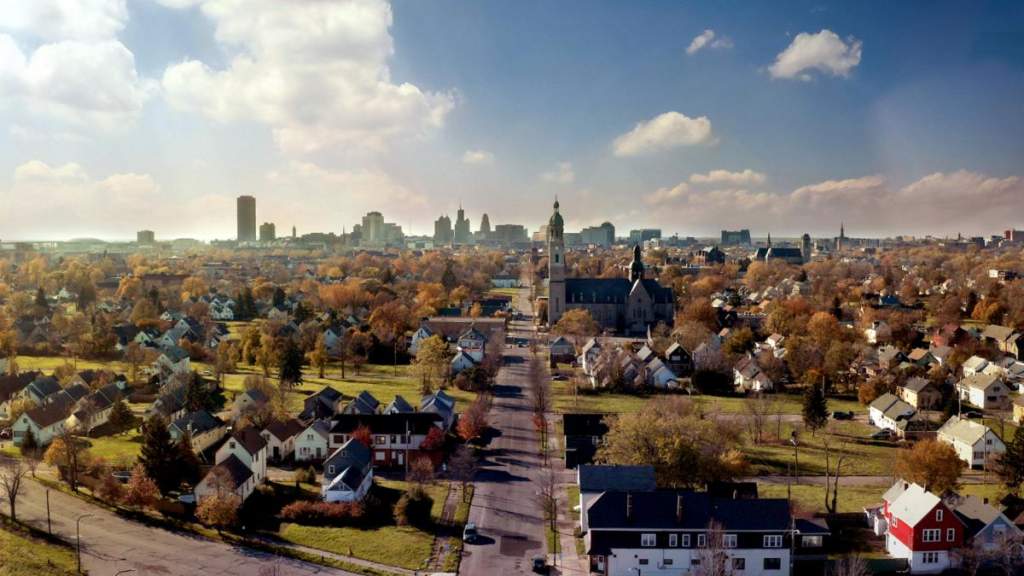The Importance of Systems Change
A new approach for the Oishei Foundation
January 14, 2025
By Mark Scott Ph. D., The John R. Oishei Foundation
At the Oishei Foundation, our work has always been focused on creating meaningful change for the Buffalo community. Over the years, we’ve worked closely with partners to address urgent needs and support direct services that improve lives. However, as we reflected on our impact through our recent strategic planning process, we recognized that while these efforts are critical, many of the challenges we face are rooted in deeper, systemic issues.
This realization has led us to embrace a systems change approach—not as experts, but as learners committed to evolving alongside our partners and community members. Systems change marks a major evolution in how we work: moving beyond immediate relief to address the underlying root causes that create and sustain inequities.
Why Systems Change?
For decades, our efforts at the Foundation–and those of many other organizations–have been focused on direct immediate services. This work is essential, and impacts our community every day. But what happens when the root causes of the issues we address remain unchanged? In some cases, we’ve seen conditions stall, or even worsen, despite the best intentions and investment of resources.
In shifting our work to systems change, we’re learning how to impact the conditions—policies, processes, institutions, relationships, and mindsets—that keep inequities in place. It’s a collaborative, long-term effort that involves small, steady steps toward a larger vision.
We recognize that immediate relief, often delivered through direct services, plays a critical role in supporting our community. In fact, direct services provide invaluable insights into systemic barriers. Intake processes and feedback from community members, for example, can uncover the broader issues at play, informing the systems change work ahead. As we move forward prioritizing systems change, we hope to create sustainable, equitable solutions that ultimately reduce the need for relief.

What We’re Learning About Systems Change
We’re not experts in systems change. We’re in the early stages of this journey, working on identifying systemic barriers, supporting efforts to challenge them, and collaborating to create new systems that work better for all.
In the spirit of learning alongside our partners and the community, we share these high level examples that have helped illustrate for us how systems change can address underlying challenges:
Food Insecurity
A direct-service approach might provide food to families in need through a food pantry. This addresses an immediate need. A systems change approach looks deeper:
- Why are families experiencing food insecurity in the first place?
- Is there limited access to grocery stores?
- Are wages too low for families to afford nutritious food?
Improving wages, investing in transportation systems, or increasing local food access can shift the system itself so fewer families experience hunger.
Workforce Development
Workforce programs often focus on skills training, but significant barriers remain:
- Lack of affordable childcare keeps parents out of the workforce.
- Hiring practices exclude certain demographics.
- Training programs don’t align with available job opportunities.
A systems change approach could involve aligning policies, employers, and community resources to ensure equitable access to good-paying jobs for all.
These examples illustrate the power of systems change—but also the complexity. We’re learning that real progress requires patience, collaboration, and a commitment to learning.
Systems change is not quick or easy. It requires us to challenge assumptions, involve those most impacted by systems, and build strong partnerships. At the Foundation, we’ve come to understand that this work is not about having all the answers but about asking the right questions and being open to continuous learning.
A Call to Action: Moving Forward Together
Systems change doesn’t happen in isolation. It requires all of us–partners, funders, community members, and leaders–to see ourselves as part of the solution and take steps to create change together. Here’s what you can do:
Commit to Learning More About Systems Change:
- If you’re interested in diving deeper into the concepts and strategies behind systems change, we’ve compiled a collection of insightful research, resources, and examples. Visit our Shared Learnings to explore how systems change can create lasting impact and learn more about the work happening here in Buffalo and beyond.
- Reflect on the systems you encounter every day—education, healthcare, housing, finance, workforce, transportation—and consider how they might fall short for you, your neighbors, or your community.
Share Your Perspective:
- We’re committed to learning and growing in this work. If you have resources—articles, books, videos, or tools—that have deepened your understanding of systems change, please share them with us to help inform our journey.
- The voices of those most impacted are critical to understanding and shifting systems. Please share your personal stories and experiences to help us understand where and how change is needed.
- Support Systemic Efforts:
- Collaborate with and support those working toward systems change in your field or neighborhood.
- Advocate for policies that create more equitable outcomes.
We know that many changemakers have been working tirelessly to shift systems, often without adequate resources or recognition. To you, we extend our gratitude—and our commitment to supporting your efforts.
At the Oishei Foundation, we believe that systems change is possible. The work ahead is complex and it will take time, but it is also hopeful and full of opportunity.
